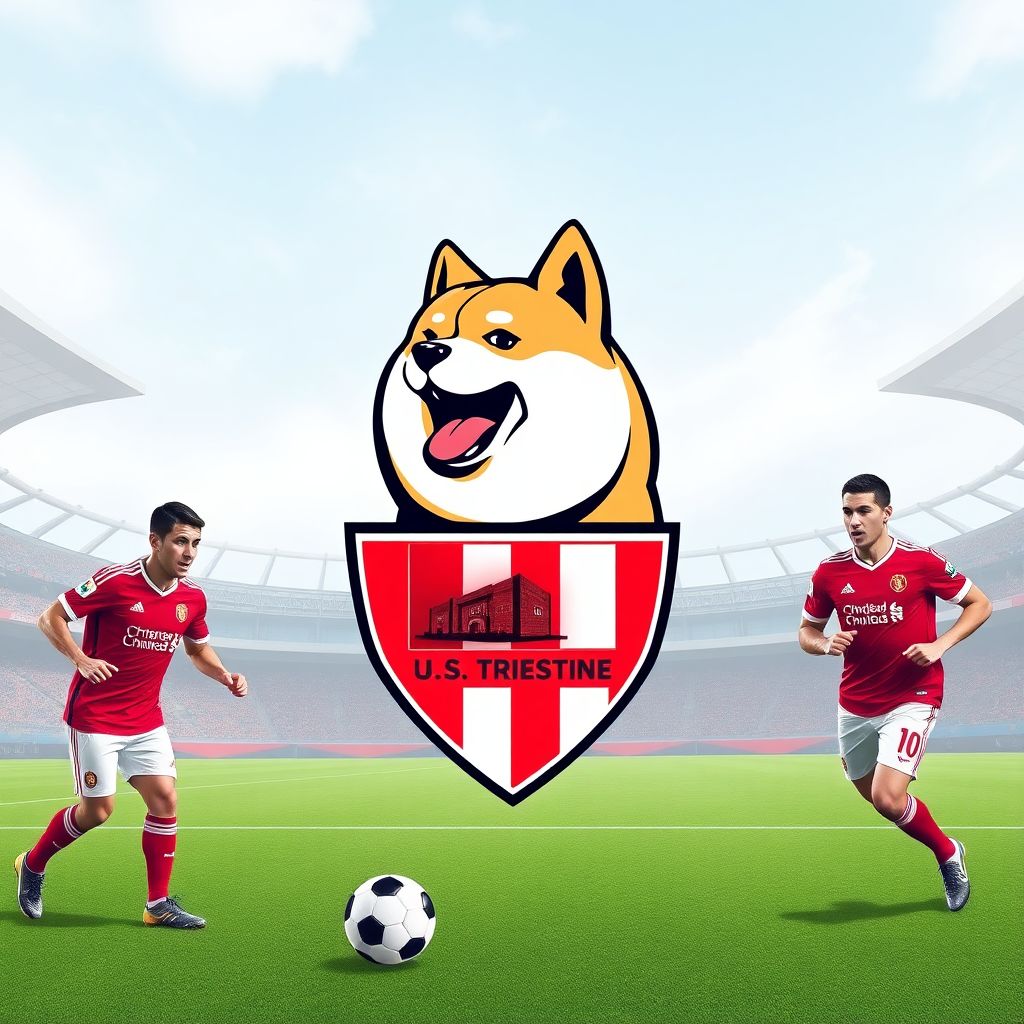Dogecoin’s commercial venture, House of Doge, has taken a significant step into the world of European sports by acquiring a majority stake in U.S. Triestina Calcio 1918, a professional Italian football club competing in Serie C. This development signals a bold move by the organization to integrate cryptocurrency and digital culture into traditional sports infrastructure.
The acquisition was executed in collaboration with Brag House Holdings, a publicly traded company that is facilitating House of Doge’s upcoming public listing through a reverse merger. This strategic partnership is not only meant to expand House of Doge’s financial reach but also to amplify the visibility of Dogecoin as a mainstream digital asset.
Marco Margiotta, CEO of House of Doge, emphasized that the investment transcends football. “This is about merging Dogecoin’s global community with the legacy of one of Europe’s historical football institutions,” Margiotta stated. “Our goal is to demonstrate how blockchain and digital assets can infuse real value into sectors like sports and entertainment.”
Founded in 1918, U.S. Triestina Calcio has a long and storied history in Italian football but currently finds itself struggling in Serie C. The club sits at the bottom of the league table, in part due to a recent administrative penalty that cost the team 13 points. Despite the current challenges, House of Doge sees an opportunity for transformation and revitalization driven by digital innovation.
This acquisition is part of a broader vision by House of Doge to tokenize various aspects of mainstream culture, with sports being the initial focus. The company has already cultivated deep ties within the sports world, boasting support from influential figures such as the Steinbrenner family, owners of the New York Yankees, and several prominent NHL athletes, including Tyler Seguin, Jason Arnott, and Ales Hemsky.
Earlier this year, House of Doge made headlines by partnering with IndyCar driver Devlin DeFrancesco, prominently featuring the Dogecoin logo on his race car at the Indianapolis 500. This initiative was not only a promotional effort but also a demonstration of how digital currencies can become part of mainstream global entertainment.
In tandem with the acquisition, House of Doge announced the addition of Roger Rai, Vice Chairman of the Toronto Blue Jays, to its advisory board. Rai is expected to play a key role in shaping the company’s sports strategy, helping to forge commercial partnerships and implement best practices across its sports ventures.
Established in early 2024, House of Doge was created to increase public engagement and adoption of Dogecoin, the world’s most recognizable meme coin. Since its inception, the firm has launched several initiatives to bridge the gap between digital assets and real-world applications, including a partnership with CleanCore to manage a Dogecoin treasury chaired by Alex Spiro, known as the personal attorney to Elon Musk.
Additionally, House of Doge is in discussions with Robinhood and 21Shares to introduce yield-generating products and alternative investment tools linked to Dogecoin. These efforts are aimed at developing a robust ecosystem where DOGE can serve not only as a speculative asset but also a viable financial instrument.
At the time of writing, Dogecoin is trading just under $0.20, reflecting a modest daily gain of 1.6%. However, the token has experienced a 25% decline over the past month and remains over 72% below its peak price of $0.73 recorded in 2021. Meanwhile, shares of Brag House (TBH) surged nearly 10% today to reach $1.13, although the stock has dropped roughly 31% in the last 30 days.
The move into professional football is a pivotal part of House of Doge’s mission to legitimize meme coins and showcase their potential to drive cultural and commercial transformation. By aligning with a century-old football club in Italy, the company is signaling a long-term commitment to integrating blockchain-based solutions within traditional industries.
Looking ahead, House of Doge is expected to roll out fan engagement platforms leveraging blockchain, such as NFT-based memberships, tokenized ticketing, and interactive fan voting mechanisms. These innovations could redefine how supporters interact with their favorite teams, offering new revenue models and community engagement tools.
Moreover, analysts speculate that the success of this venture could inspire other crypto-focused firms to explore similar acquisitions in sports, entertainment, and media. As the lines between digital finance and real-world industries continue to blur, companies like House of Doge may pave the way for a new era of hybrid business models.
In the broader context, this acquisition reflects the growing trend of cryptocurrency projects seeking relevance beyond the blockchain. By embedding themselves into globally recognized institutions like football clubs, they aim to shift public perception and establish crypto as a legitimate player in the global economy.
Whether House of Doge’s gamble on U.S. Triestina will pay off remains to be seen, but the initiative has already sparked conversations about the future role of digital assets in shaping legacy industries. As the club prepares for a new chapter, backed by a digital-first investor, the world will be watching to see if Dogecoin’s community can help write a comeback story both on and off the field.

